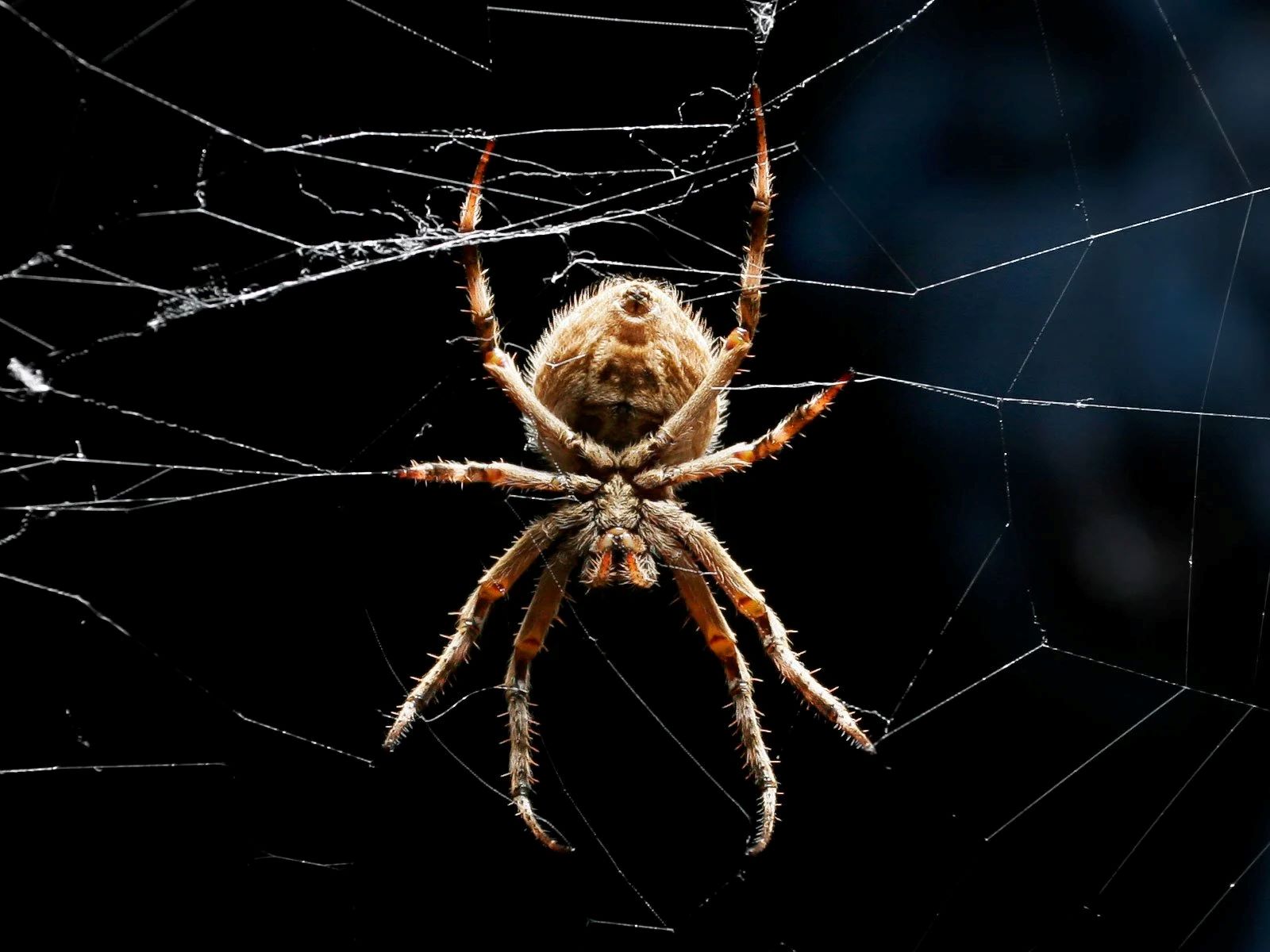
Garden Orbweavers are fascinating creatures that often go unnoticed in our gardens. These spiders belong to the family Araneidae and can be found in different parts of the world. Despite their name, Garden Orbweavers do not exclusively dwell in gardens but can also be found in forests, meadows, and even urban areas.
In this article, we will uncover 12 astounding facts about Garden Orbweavers that will leave you both amazed and intrigued. From their intricate web-building abilities to their unique hunting strategies, these spiders have a lot to offer in terms of their behavior and natural history. So, let’s dive into the captivating world of Garden Orbweavers and discover the secrets they hold!
Key Takeaways:
- Garden Orbweavers are skilled weavers that create intricate orb-shaped webs to catch prey. They are harmless to humans and help control insect populations, making them beneficial to gardens and ecosystems.
- These spiders have striking color patterns, communicate through vibrations, and exhibit fascinating reproductive strategies. Their strong silk, unique behaviors, and vital ecological roles make them captivating creatures in nature.
The Garden Orbweaver is a master weaver.
The Garden Orbweaver, scientifically known as Eriophora ravilla, is an intriguing spider species known for its exceptional weaving skills. Using its silk, this spider creates large, intricate orb-shaped webs to catch its prey.
They have striking color patterns.
One of the most remarkable features of the Garden Orbweaver is its vibrant coloration. The females typically have a combination of black, silver, yellow, and orange markings on their bodies. These patterns can vary in intensity and serve as a natural camouflage.
The Garden Orbweaver is harmless to humans.
Despite its intimidating appearance, the Garden Orbweaver is not dangerous to humans. It is a non-aggressive spider that rarely bites unless provoked or threatened. Its venom is relatively mild and usually produces only mild discomfort.
They are excellent hunters.
The Garden Orbweaver exhibits remarkable hunting skills. Once its web is set, it patiently waits for insects to get trapped within its sticky silk strands. With lightning-fast reflexes, the spider captures its prey and wraps it in silk before consuming it.
These spiders are found worldwide.
The Garden Orbweaver is a cosmopolitan species, meaning it can be found across the globe in various habitats. Whether it’s in gardens, forests, or even urban areas, these spiders have managed to adapt and thrive in diverse environments.
They play a vital role in controlling insect populations.
Garden Orbweavers are beneficial to ecosystems as they help in keeping insect populations in check. By capturing and consuming a wide range of insects, they contribute to maintaining the balance of the natural food chain.
Garden Orbweavers are known for sexual cannibalism.
During mating, the female Garden Orbweaver may sometimes engage in sexual cannibalism, where it eats the male after copulation. This behavior is believed to provide the female with essential nutrients for egg production and ensures the success of the offspring.
They undergo a fascinating molting process.
Like other spiders, the Garden Orbweaver goes through molting to grow and shed its exoskeleton. During this process, it wraps itself in a silk cocoon and emerges with a new, larger exoskeleton, enabling it to continue its growth and development.
Orbweaver silk is incredibly strong.
The silk produced by the Garden Orbweaver is renowned for its strength and durability. In fact, pound for pound, spider silk is considered one of the strongest natural materials in the world, even surpassing steel!
They have a unique way of communicating.
Male Garden Orbweavers communicate with females using vibrations transmitted through the web. By plucking specific strands, they create distinct patterns that signal their presence and intentions to potential mates.
Garden Orbweavers are beneficial to gardens.
Having these spiders in your garden can be advantageous as they help control pest populations that can damage your plants. By naturally keeping pests in check, they contribute to the overall health and vitality of your garden ecosystem.
They have fascinating reproductive strategies.
Garden Orbweavers employ various reproductive strategies to ensure the survival of their offspring. From the unique mating rituals to the ingenious ways they protect their egg sacs, these spiders exhibit remarkable adaptations to secure the next generation.
The Garden Orbweaver is a captivating spider species that showcases remarkable weaving abilities, vibrant coloration, and beneficial ecological roles. With its intriguing behaviors and unique adaptations, it continues to fascinate both researchers and nature enthusiasts worldwide. The presence of Garden Orbweavers in gardens and ecosystems is a testament to their importance in maintaining the delicate balance of nature.
Conclusion
In conclusion, the garden orbweaver is a fascinating creature that deserves our attention and admiration. From its intricate web-spinning abilities to its unique coloration and behavior, there is so much to learn and appreciate about these spiders. They serve a crucial role in controlling insect populations and maintaining the delicate balance of ecosystems.Next time you come across a garden orbweaver, take a moment to observe and appreciate its beauty. These spiders are not only beneficial to our gardens but also offer us a glimpse into the wonders of the natural world. So, let’s continue to explore and protect these incredible creatures and their fragile habitats.
FAQs
Q: What is a garden orbweaver?
A: A garden orbweaver is a common type of spider that belongs to the family Araneidae. They are known for their large, orb-shaped webs and colorful appearances.
Q: Are garden orbweavers venomous?
A: Yes, garden orbweavers are venomous. However, their venom is not usually harmful to humans. Their bites may cause mild irritation or a slight allergic reaction in some individuals.
Q: What do garden orbweavers eat?
A: Garden orbweavers primarily feed on insects like flies, moths, beetles, and mosquitoes. They use their webs to catch and immobilize their prey before consuming them.
Q: Where can I find garden orbweavers?
A: Garden orbweavers can be found in gardens, parks, forests, and other natural habitats. They prefer areas with ample vegetation where they can build their webs and capture prey.
Q: How long do garden orbweavers live?
A: The lifespan of a garden orbweaver varies depending on the species and environmental conditions. On average, they can live anywhere from a few months to a year.
Q: How do garden orbweavers build their webs?
A: Garden orbweavers use specialized glands to produce silk, which they use to construct their orb-shaped webs. They start by building a framework of radial threads and then add spiral threads to complete the web.
Q: Are garden orbweavers beneficial to the environment?
A: Yes, garden orbweavers play a vital role in controlling insect populations. By capturing and feeding on insects, they help maintain the balance of the ecosystem and reduce the prevalence of pests.
Q: Are garden orbweavers aggressive towards humans?
A: No, garden orbweavers are generally not aggressive towards humans. They prefer to retreat and hide instead of engaging in confrontation. Bites are rare and typically occur when they feel threatened or cornered.
Q: Can I keep a garden orbweaver as a pet?
A: While garden orbweavers can be fascinating to observe, they are best appreciated in their natural habitat. It’s not recommended to keep them as pets because they have specific environmental requirements and may not thrive in captivity.
Q: How can I attract garden orbweavers to my garden?
A: To attract garden orbweavers to your garden, provide a habitat with plenty of plants, shrubs, and trees. Avoid using pesticides, as they can harm the spiders and their food sources. Be patient, and the orbweavers will likely discover your garden on their own.
Garden Orbweavers are truly remarkable creatures, but they're not the only fascinating spiders out there. If you're curious about other incredible arachnids, you might want to learn more about their close relatives, the Yellow Garden Orbweavers and Silver Garden Orbweavers. These spiders have their own unique characteristics and behaviors that will leave you in awe. So why not satisfy your curiosity and explore the astounding facts about these two species? You won't be disappointed by the captivating details waiting to be discovered.
Was this page helpful?
Our commitment to delivering trustworthy and engaging content is at the heart of what we do. Each fact on our site is contributed by real users like you, bringing a wealth of diverse insights and information. To ensure the highest standards of accuracy and reliability, our dedicated editors meticulously review each submission. This process guarantees that the facts we share are not only fascinating but also credible. Trust in our commitment to quality and authenticity as you explore and learn with us.


